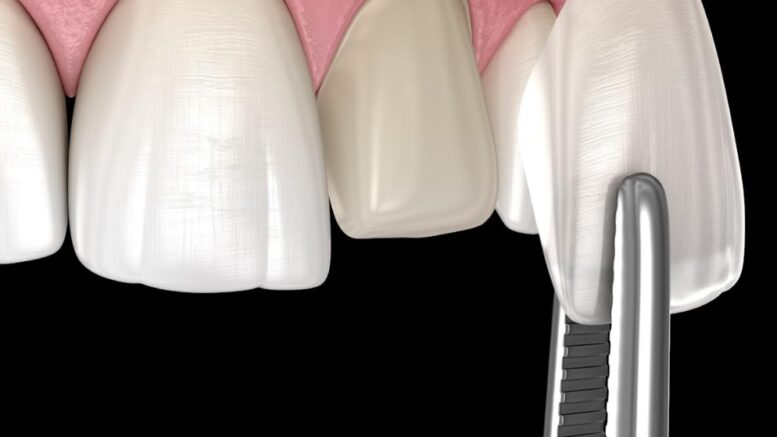When it comes to enhancing or repairing front teeth, dental crowns and veneers are the most commonly performed dental procedures. However, veneers and crowns serve different functions.
The choice between crowns and veneers will vary for each individual. This article describes the fundamentals of each dental procedure and its respective functions so that you may choose the appropriate treatment to enhance your smile.
Dental Veneer: What Is It?
A dental veneer is typically made of wafer-thin porcelain that’s bonded to the front surface of your tooth. They’re less invasive as dental crowns since the preparation leaves most of your original tooth intact.
Generally, the front of your tooth is often reduced by no more than half a millimeter so that the veneer can adhere properly. On the other hand, today’s new forms of veneers don’t require significant tooth surface grinding.
Dental Crown: What Is It?
A dental crown, also known as a dental cap, is a more extensive dental restoration procedure according to this dentist who does dental implants in Chattanooga. Therefore, before placing a crown, the damaged tooth must be reduced in size by grinding or filing.
Since it encases the entire tooth, crowns can help reinforce any broken or weak structures underneath. This helps distribute pressure, promoting normal tooth function.
Dental Crown vs. Veneers: How Much Do They Cost?
While prices will depend on where you live and the type of materials used, both veneers and crowns are considered expensive dental procedures.
On average, the cost of dental veneers can range from USD$900 up to USD$2,500 per tooth. However, for cheaper materials like composite veneers, you can get them for USD$250 to USD$1,500 per tooth.
On the other hand, dental crowns have more complex pricing. The cost will depend on the materials, the size of the tooth, and the amount of prep work needed. That said, statistics show that dental crowns can range from USD$1,000 to USD$3,500 per tooth. Take note that this cost estimate doesn’t include the procedures needed before the crown, such as root canals or core buildup.
When Should You Choose Dental Veneers?
As a purely cosmetic procedure, a dental veneer is the best choice when you only want to address minor issues that are aesthetic in nature. It’s also more commonly applied to the front teeth.
In general, dental veneers are used to fix the following cosmetic issues:
- Chipped or broken teeth
- Minor cracks
- Uneven coloring or severely stained teeth that can’t be fixed with a tooth whitening procedure
- Smaller-than-average tooth
- Small gaps between teeth
- Pointed or irregularly shaped tooth
- Superficial misalignment
In these cases, a dental veneer can significantly improve the overall color and appearance of the teeth, ensuring an improved and better smile.
But please remember that veneers are a semi-permanent investment. Once a veneer has been applied to your tooth, it will require coverage in the future. Thus, you’ll need a replacement veneer once it reaches its lifespan of over ten years.

When Should You Choose Dental Crowns?
Crowns are used for restoration purposes. It is commonly utilized when there are more underlying issues or severe damage to the existing teeth. Such circumstances may include badly broken or cracked teeth and the need for root canal treatment.
A dental crown is used to safeguard a weak tooth (perhaps caused by disease, mouth traumas, or wear and tear) from breaking and to prevent future damage that could result in tooth loss. Once cemented in place, the crown becomes the new outer surface of the tooth, concealing the natural tooth within.
Another circumstance in which a dental crown is preferable to a veneer is when the tooth’s edge has been damaged or worn down due to grinding. To improve the appearance of a misshapen or worn-down tooth, a crown is a far superior alternative than a veneer because veneers only cover the front surface of the tooth.
In addition, it makes more sense for a dental crown to secure a dental bridge or cover a tooth implant. Additionally, since crowns cover the entire damaged tooth, they can significantly alter the shape and color of the existing teeth.
Takeaway
As you can see, both dental crowns and veneers can help improve the function of your teeth and enhance your smile. That said, depending on your dental issue, you’ll have to choose one over the other.
In general, crowns help repair broken teeth and ensure a nice smile, whereas veneers are only cosmetic in nature. If you’re still not sure which procedure to choose, you can always consult with your dentist to recommend the most practical choice for your teeth.
